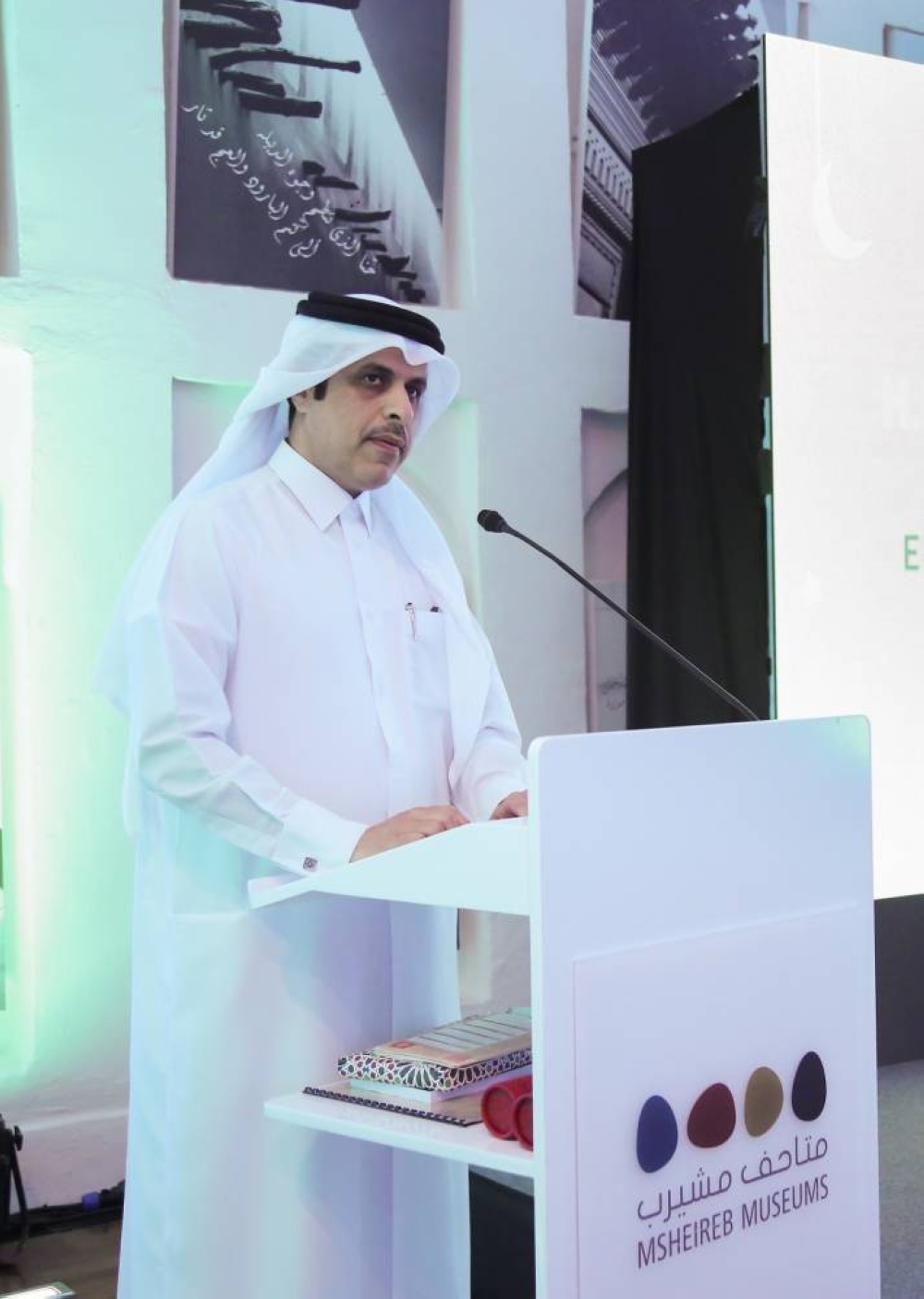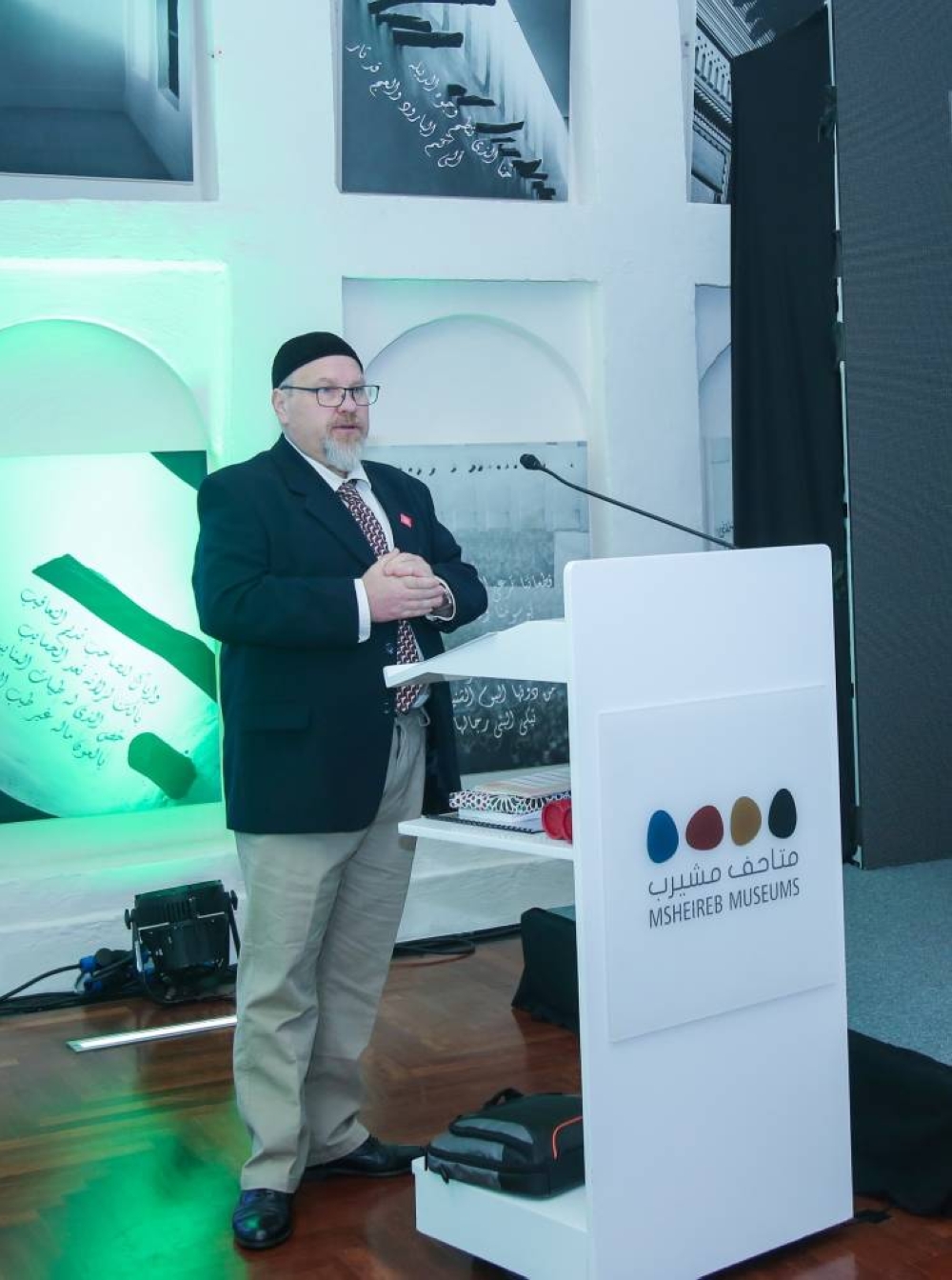Ahmed Mohamed al-Sada, assistant undersecretary of the Ministry of Environment and Climate Change, has called on Muslims to take proactive steps to care for the environment, which is “an important aspect of Islam”. Al-Sada made the call during his keynote speech during the Earth Talk Series, which was hosted by Msheireb Museums in partnership with Arab Youth Climate Movement Qatar (AYCMQ).
Under the theme ‘Islam and the Environment’, the event was held at Bin Jelmoud House where other keynote speeches were delivered by US ambassador Timmy T Davis and Msheireb Museums manager Abdulla al-Naama.
The main presentation and talk were delivered by Mark Bryant (Abdallah Bryant), senior consultant of the UK-based Islamic Foundation for Ecology and Environmental Science and EcoIslam. He delivered a lecture that covered an introduction to Islamic environmental ethics, its practical applications, and its role in addressing the climate crisis.
Al-Sada said, “Protection of the environment is an integral part of Islamic beliefs and mankind has the responsibility to safeguard nature. We must take all necessary measures to ensure the preservation and protection of the environment and should pass this value to our coming generations in the best way possible.”
Al-Naama highlighted the role of Msheireb Museums in raising awareness of such topics and promoting sustainability among community members. He said, “The Earth Talks series is informative and insightful with the second lecture focusing on introducing Islamic environmental ethics and its practical applications in addressing the climate crisis. It is important to further the conversation around the intersection of religion and the environment and we should all take positive action to create a sustainable future for all.”
Bryant delivered a detailed presentation showing how Islam urges people to conserve resources and protect the environment. He said, “These aspects are highlighted in the principles of Islam and the Qur'an. Islam has a very strong environmental ethic and Islam is environmental. Muslims often need to relearn this because it is part of their faith and we need to emphasise this part in our life to save ourselves and the rest of the planet and be good Muslims.”
Bryant added, “I am excited to be here at Msheireb Museums in Qatar to exchange thoughts and insights, and I am confident that such talks will help spread our positive messages to the wider community.”
Previously held at Qatar National Library, Qatar Foundation, and other venues in Doha, the Earth Talk lectures have drawn a wide range of community members, high-level officials, and educators interested in sustainability.
The series fulfills Msheireb Downtown Doha and Msheireb Museums’ commitment to be leaders in sustainability and innovation, and to advance the local conversation on the issues of climate change, ecological challenges and solutions, and corporate social responsibility.
Leading intellectuals and policymakers spark discussions on how to make a transformative change in the community for a better sustainable future. The series also invites representatives of NGOs and development agencies to provide on-the-ground perspectives.
Msheireb Museums, the cultural and tourist destination in Msheireb Downtown Doha, organises and hosts several educational and awareness programmes, in collaboration with prominent local and international organisations. It plays an integral role in supporting various social, cultural, educational, and art initiatives that give back to the community.

Glimpses from the event.

Glimpses from the event.

Glimpses from the event.

